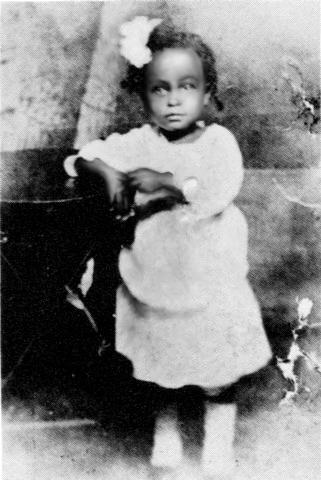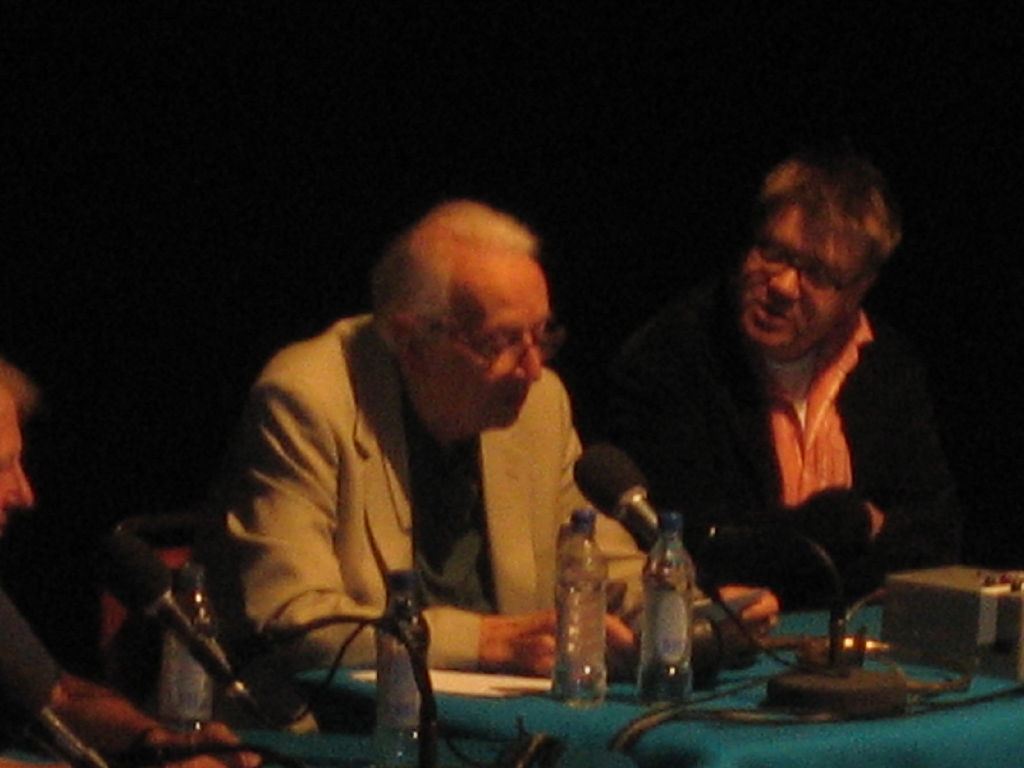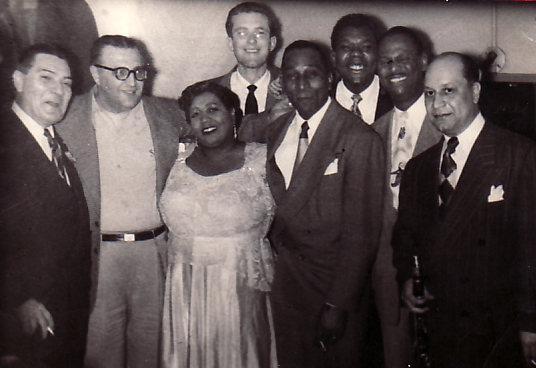|
I'm Gonna Lock My Heart (And Throw Away The Key)
"I'm Gonna Lock My Heart (And Throw Away the Key)" is a song written by Jimmy Eaton and Terry Shand. It was first recorded in 1938 by Billie Holiday for Vocalion Records. Holiday recorded the song in New York City on June 23, 1938, with musicians including Charlie Shavers (trumpet), Buster Bailey (clarinet), Babe Russin (tenor saxophone), Claude Thornhill (piano), John Kirby (bass), Cozy Cole (drums), and an unidentified guitarist. Her recording was commercially successful, reaching No.2 on the pop charts in 1938 according to Joel Whitburn. Another version, by Henry Busse on Decca Records, reached No.7 on the charts the same year.Whitburn p.71 Later recordings include those by Eddy Arnold (1953), Carmen McRae (1962), and Elkie Brooks with Humphrey Lyttelton Humphrey Richard Adeane Lyttelton (23 May 1921 – 25 April 2008), also known as Humph, was an English jazz musician and broadcaster from the Lyttelton family. Having taught himself the trumpet at school, Lytt ... [...More Info...] [...Related Items...] OR: [Wikipedia] [Google] [Baidu] |
Billie Holiday
Billie Holiday (born Eleanora Fagan; April 7, 1915 – July 17, 1959) was an American jazz and swing music singer. Nicknamed "Lady Day" by her friend and music partner, Lester Young, Holiday had an innovative influence on jazz music and pop singing. Her vocal style, strongly inspired by jazz instrumentalists, pioneered a new way of manipulating phrasing and tempo. She was known for her vocal delivery and improvisational skills. After a turbulent childhood, Holiday began singing in nightclubs in Harlem, where she was heard by producer John Hammond, who liked her voice. She signed a recording contract with Brunswick in 1935. Collaborations with Teddy Wilson produced the hit "What a Little Moonlight Can Do", which became a jazz standard. Throughout the 1930s and 1940s, Holiday had mainstream success on labels such as Columbia and Decca. By the late 1940s, however, she was beset with legal troubles and drug abuse. After a short prison sentence, she performed at a sold-out c ... [...More Info...] [...Related Items...] OR: [Wikipedia] [Google] [Baidu] |
Joel Whitburn
Joel Carver Whitburn (November 29, 1939 – June 14, 2022) was an American author and music historian, responsible for setting up the Record Research, Inc. series of books on record chart placings. Early life Joel Carver Whitburn was born in Wauwatosa, Wisconsin on November 29, 1939."Joel (Carver) Whitburn". '' Contemporary Authors''. Detroit: Gale. 2002. He started collecting records in his teens, first subscribed to '' Billboard'' in 1953, and when the Hot 100 was introduced in 1958 started recording the chart placings of records on index cards. After graduating from Menomonee Falls High School in 1957, he attended Elmhurst College and the University of Wisconsin–Milwaukee, but did not receive a degree from either institution. Career Whitburn worked on record distribution for RCA in the mid 1960s, using his chart statistics to inform radio stations, before founding his own company, Record Research, Inc., in Menomonee Falls, Wisconsin, in 1970. He put together a team o ... [...More Info...] [...Related Items...] OR: [Wikipedia] [Google] [Baidu] |
1938 Songs
Events January * January 1 ** The Constitution of Estonia#Third Constitution (de facto 1938–1940, de jure 1938–1992), new constitution of Estonia enters into force, which many consider to be the ending of the Era of Silence and the authoritarian regime. ** state-owned enterprise, State-owned railway networks are created by merger, in France (SNCF) and the Netherlands (Nederlandse Spoorwegen – NS). * January 20 – King Farouk of Egypt marries Safinaz Zulficar, who becomes Farida of Egypt, Queen Farida, in Cairo. * January 27 – The Honeymoon Bridge (Niagara Falls), Honeymoon Bridge at Niagara Falls, New York, collapses as a result of an ice jam. February * February 4 ** Adolf Hitler abolishes the War Ministry and creates the Oberkommando der Wehrmacht (High Command of the Armed Forces), giving him direct control of the German military. In addition, he dismisses political and military leaders considered unsympathetic to his philosophy or policies. Gene ... [...More Info...] [...Related Items...] OR: [Wikipedia] [Google] [Baidu] |
Humphrey Lyttelton
Humphrey Richard Adeane Lyttelton (23 May 1921 – 25 April 2008), also known as Humph, was an English jazz musician and broadcaster from the Lyttelton family. Having taught himself the trumpet at school, Lyttelton became a professional musician, leading his own eight-piece band, which recorded a hit single, " Bad Penny Blues", in 1956. As a broadcaster, he presented BBC Radio 2's ''The Best of Jazz'' for forty years, and hosted the comedy panel game ''I'm Sorry I Haven't a Clue'' on BBC Radio 4, becoming the UK's oldest panel game host. Lyttelton was also a cartoonist, collaborating on the long-running ''Flook'' series in the ''Daily Mail'', and a calligrapher and president of The Society for Italic Handwriting. Early life and career Lyttelton was born at Eton College (then in Buckinghamshire), where his father, George William Lyttelton (second son of the 8th Viscount Cobham), was a house master. (As a male-line descendant of Charles Lyttelton, Lyttelton was in remain ... [...More Info...] [...Related Items...] OR: [Wikipedia] [Google] [Baidu] |
Elkie Brooks
Elkie Brooks (born Elaine Bookbinder; 25 February 1946) is an English rock, blues and jazz singer. She was a vocalist with the bands Dada and Vinegar Joe, and later became a solo artist. She gained her biggest success in the late 1970s and 1980s, releasing 13 UK Top 75 singles, and reached the top ten with " Pearl's a Singer", " Sunshine After the Rain" and the title track of the album ''No More the Fool'' (1986). She has been nominated twice for the Brit Awards. Brooks is a Gold Badge Award of Merit winner from the British Academy of Songwriters, Composers and Authors (BASCA) (now The Ivors Academy) and is generally referred to as the "British Queen of Blues". Life and career Early career and Vinegar Joe Brooks was born Elaine Bookbinder in Salford, to a Jewish family. Her father's grandparents emigrated to Britain from Poland at the start of the 20th century to escape the pogroms. Her older brothers are Raymond Bookbinder (born 1938) and Anthony Bookbinder (born 28 May 1 ... [...More Info...] [...Related Items...] OR: [Wikipedia] [Google] [Baidu] |
Carmen McRae
Carmen Mercedes McRae (April 8, 1920 – November 10, 1994) was an American jazz singer. She is considered one of the most influential jazz vocalists of the 20th century and is remembered for her behind-the-beat phrasing and ironic interpretation of lyrics. Early life and education McRae was born in Harlem, New York City, United States. Her father, Osmond, and mother, Evadne (Gayle) McRae, were immigrants from Jamaica Jamaica (; ) is an island country situated in the Caribbean Sea. Spanning in area, it is the third-largest island of the Greater Antilles and the Caribbean (after Cuba and Hispaniola). Jamaica lies about south of Cuba, and west of Hispan .... She began studying piano when she was eight, and the music of jazz greats such as Louis Armstrong and Duke Ellington filled her home. When she was 17 years old, she met singer Billie Holiday. As a teenager McRae came to the attention of Teddy Wilson and his wife, the composer Irene Kitchings. One of McRae's ear ... [...More Info...] [...Related Items...] OR: [Wikipedia] [Google] [Baidu] |
Eddy Arnold
Richard Edward Arnold (May 15, 1918 – May 8, 2008) was an American country music singer who performed for six decades. He was a Nashville sound (country/popular music) innovator of the late 1950s, and scored 147 songs on the '' Billboard'' country music charts, second only to George Jones. He sold more than 85 million records. A member of the Grand Ole Opry (beginning 1943) and the Country Music Hall of Fame (beginning 1966), Arnold ranked 22nd on Country Music Television's 2003 list of "The 40 Greatest Men of Country Music." Early years Arnold was born on May 15, 1918, on a farm near Henderson, Tennessee. His father, a sharecropper, played the fiddle, while his mother played guitar. Arnold's father died when he was just 11, forcing him to leave school and begin helping on the family farm. This led to him later gaining his nickname, the Tennessee Plowboy. Arnold attended Pinson High School in Pinson, Tennessee, where he played guitar for school functions and events. ... [...More Info...] [...Related Items...] OR: [Wikipedia] [Google] [Baidu] |
Decca Records
Decca Records is a British record label established in 1929 by Edward Lewis. Its U.S. label was established in late 1934 by Lewis, Jack Kapp, American Decca's first president, and Milton Rackmil, who later became American Decca's president. In 1937, anticipating Nazi aggression leading to World War II, Lewis sold American Decca and the link between the U.K. and U.S. Decca labels was broken for several decades. The British label was renowned for its development of recording methods, while the American company developed the concept of cast albums in the musical genre. Both wings are now part of the Universal Music Group. The U.S. Decca label was the foundation company that evolved into UMG (Universal Music Group). Label name The name dates back to a portable gramophone called the "Decca Dulcephone" patented in 1914 by musical instrument makers Barnett Samuel and Sons. The name "Decca" was coined by Wilfred S. Samuel by merging the word "Mecca" with the initial D of their log ... [...More Info...] [...Related Items...] OR: [Wikipedia] [Google] [Baidu] |
Henry Busse
Henry Busse Sr. (May 19, 1894 – April 23, 1955) was a German-born jazz trumpeter. A 1948 review in ''Billboard'' magazine said that Busse had "a keen sense of musical commercialism". Early life Born May 19, 1894, in Magdeburg, Germany, to a generational German Band family, Henry Busse studied violin and then trumpet (after a finger he had broken was set incorrectly) under his Oompah Band leader uncle. In 1912, following numerous failed attempts, at age 18, Busse successfully ran away from the family farm outside of Magdeburg, Germany, where he had been forced to play trumpet in his uncle's band. Henry initially "jumped ship" in New York City, landing in the German ghettos there. Rousted by the police for sleeping in Grand Central Station, unable to speak English, he found a job on a boat heading to California. He acquired some English on his trip. 1916 found Busse in Hollywood working as an extra in Keystone Cop films and playing trumpet in a movie theater pit band. (T ... [...More Info...] [...Related Items...] OR: [Wikipedia] [Google] [Baidu] |
Cozy Cole
William Randolph "Cozy" Cole (October 17, 1909 – January 9, 1981) was an American jazz drummer who worked with Cab Calloway and Louis Armstrong among others and led his own groups. Life and career William Randolph Cole was born in East Orange, New Jersey, United States. His first music job was with Wilbur Sweatman in 1928. In 1930, he played for Jelly Roll Morton's Red Hot Peppers, recording an early drum solo on "Load of Cole". He spent 1931–33 with Blanche Calloway, 1933–34 with Benny Carter, 1935–36 with Willie Bryant, 1936–38 with Stuff Smith's small combo, and 1938–42 with Cab Calloway. In 1942, he was hired by CBS Radio music director Raymond Scott as part of network radio's first integrated orchestra. After that he played with Louis Armstrong's All Stars. Cole performed with Louis Armstrong and his All Stars with Velma Middleton singing vocals for the ninth Cavalcade of Jazz concert held at Wrigley Field in Los Angeles. The concert was produced by L ... [...More Info...] [...Related Items...] OR: [Wikipedia] [Google] [Baidu] |
Jazz
Jazz is a music genre that originated in the African-American communities of New Orleans, Louisiana in the late 19th and early 20th centuries, with its roots in blues and ragtime. Since the 1920s Jazz Age, it has been recognized as a major form of musical expression in traditional and popular music. Jazz is characterized by swing and blue notes, complex chords, call and response vocals, polyrhythms and improvisation. Jazz has roots in European harmony and African rhythmic rituals. As jazz spread around the world, it drew on national, regional, and local musical cultures, which gave rise to different styles. New Orleans jazz began in the early 1910s, combining earlier brass band marches, French quadrilles, biguine, ragtime and blues with collective polyphonic improvisation. But jazz did not begin as a single musical tradition in New Orleans or elsewhere. In the 1930s, arranged dance-oriented swing big bands, Kansas City jazz (a hard-swinging, bluesy, improvisationa ... [...More Info...] [...Related Items...] OR: [Wikipedia] [Google] [Baidu] |
John Kirby (musician)
John Kirby (December 31, 1908 – June 14, 1952), was an American jazz double-bassist, who also played trombone and tuba. In addition to sideman work (prominently with Benny Goodman), Kirby is remembered for leading a successful chamber jazz sextet in the late 1930s and early 1940s, which scored several hit songs including "Loch Lomond" and the debut recording of "Undecided", a jazz standard. He is perhaps the first musician in the chamber jazz genre. Background Kirby was born John Kirk in Winchester, Virginia, United States, on 31 December 1908. His mother, Dolly Kirk (died October 1925) gave him up for adoption in 1908 and he was raised by Reverend Washington Johnson and his wife, Nancy, at 442 North Kent Street in Winchester. (Kirby is listed as a household member in the 1920 United States Federal Census, but not in the 1910 census.) Kirby was a student at the Winchester Colored School, renamed Douglass School in 1916. He took piano lessons from Nancy and valve trombone les ... [...More Info...] [...Related Items...] OR: [Wikipedia] [Google] [Baidu] |







